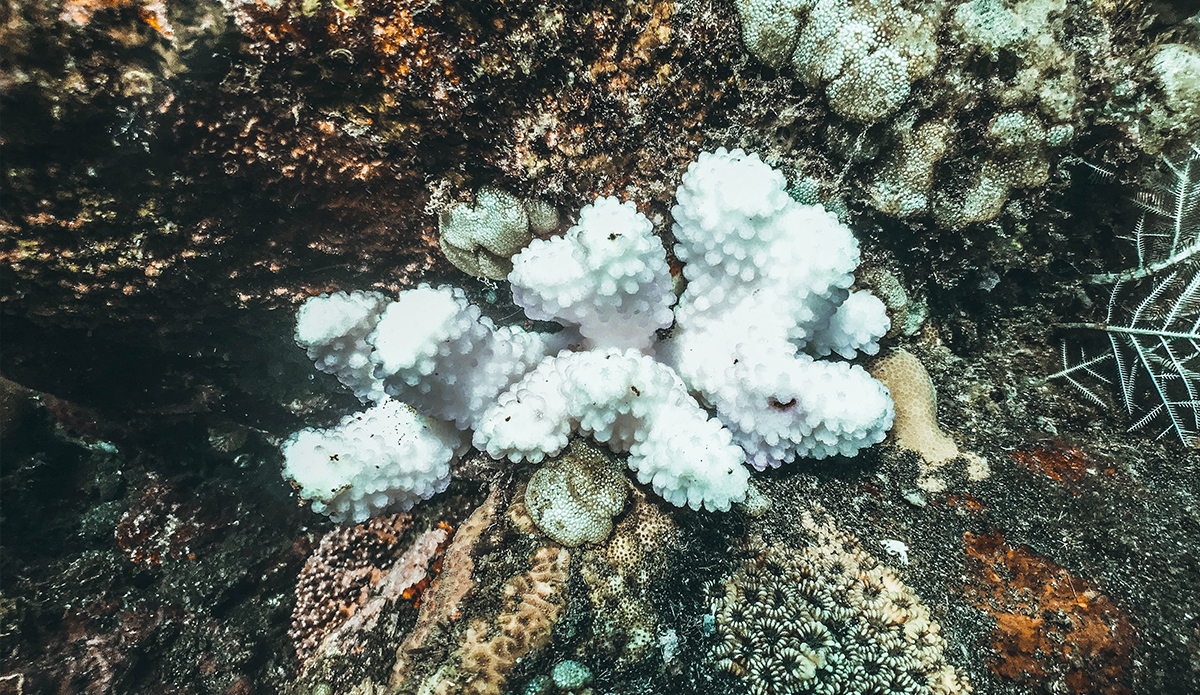
Photo: Naja Bertolt Jensen // Unsplash
Scientists have found evidence of coral bleaching 90 meters (295 feet) below the surface of the Indian Ocean, depths previously thought to be resistant to ocean warming. Researchers from the University of Plymouth found that damage caused by rising ocean temperatures harmed up to 80 percent of the reefs in certain parts of the seabed, according to a study published in Nature Communications.
“There are no two ways about it, this is a huge surprise,” said Philip Hosegood, Associate Professor in Physical Oceanography and lead scientist on the project. “Deeper corals had always been thought of as being resilient to ocean warming, because the waters they inhabit are cooler than at the surface and were believed to remain relatively stable. However, that is clearly not the case and – as a result – there are likely to be reefs at similar depths all over the world that are at threat from similar climatic changes.”
The damage was first observed in 2019, leading researchers to use a combination of in situ monitoring, underwater robots and satellite-generated oceanographic to study the phenomena. What they found was that even when surface temperatures remained stable, a 7°C (45°F) rise in temperature below the surface was adversely affecting deep-sea coral. This deep-sea bleaching occurred even when shallower reefs showed no signs of harm.
The silver lining is that, when researchers returned to the same area in 2020 and 2022, they found that large parts of the reef had recovered. However, the findings are still a cause for concern, as mesophotic corals (found between 100-490 feet under the surface) had previously been expected to defray the ecological damage caused by shallow-water coral bleaching due to ocean warming.
“The oceanography of a region is impacted by naturally occurring cycles that are becoming amplified by climate change,” said Hosegood. “Currently, the region is suffering similar, if not worse, impacts due to the combined influence of El Nino and the Indian Ocean Dipole. While there is no way we can stop the thermocline from deepening, what we can do is expand our understanding of the impacts that these changes will have throughout these environments of which we have so little knowledge. In the face of fast-paced global change, that has never been more urgent.”

